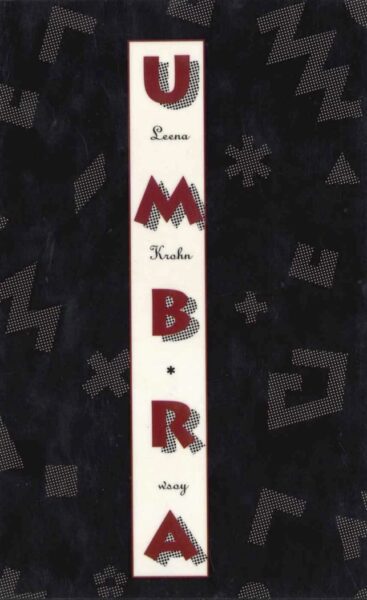Human chaos and pure abstractions, narrated in the spirit of Borges and Calvino.
Author: Leena Krohn
Finnish original: Umbra
Publisher: WSOY, 1990
Genre: literary fiction
Number of pages: 154 pp.
Reading material: Finnish original, English sample
Rights sold: Japan, Shinhyōron; Sweden, Sahlgren
Umbra is a doctor whose holiday in Romania turns into human rage and violence when the revolution starts. In addition to Ceausescus, he gets to treat a neural computer which has learned to feel fear, like humans.
This distinction between the human chaos and a clear, artificial world of abstractions is one of the central themes of Umbra. The reality in which Umbra lives is that of flesh and blood, but also of pure abstractions. In this setting, surrounded with strange characters, Umbra starts collecting the Paradox Archive, which consists of small and hugest imaginable puzzles.
With rich fantasy, allegories, and odd events Leena Krohn shows how even the strongest elements can fracture, and questions of free will, consciousness, moral and perception arise. The result is a captivating story of a man facing the problems of infinity, suffering and guilt in a world filled with disorder and chaos.
“Leena Krohn presents a very rare combination of fantasy and thought in Finnish literature; elsewhere in the world these themes have been explored by, for example, Italo Calvino and Jorge Luis Borges. […] But she is totally indispensable. We don’t have anyone better at discussing the conflict between what is seen and what is known, what you want and what you must, discussing the irrational basis of reason, the impossibility of objective observation, and the connection between individual sovereignty and the cosmos.”
– Helsingin Sanomat newspaper on Umbra
“Krohn herself sometimes sees self-awareness as a kind of affliction. The title character of the novel Umbra is a doctor who one day receives a strange request from a married couple. Their home robot, it appears, has started to experience fear. Like the scientist in Gorgonoids, Umbra is not certain that being more human is something the android should evolve toward. ‘Stay in the kingdom of pure abstraction,’ he implores.”
– The New Yorker
Also available:
Things I Never Learned (2021)
Perdition (2018)
A Letter to Buddha (2016)
Mistake (2015)
Hotel Sapiens (2013)
Children of the Sun (2011)
False Window (2009)
My Home is Riioraa (2008)
The Bee Pavilion (2006)
Datura (2001)
Mathematical Creatures, or Shared Dreams (1992)
Gold of Ophir (1988)
Tainaron (2006 | 1985)
Doña Quixote and Other Citizens (1983)
The Pelican’s New Clothes – A Story from the City (1976)
The Green Revolution (1970 | 2020)
About the author:
Leena Krohn
